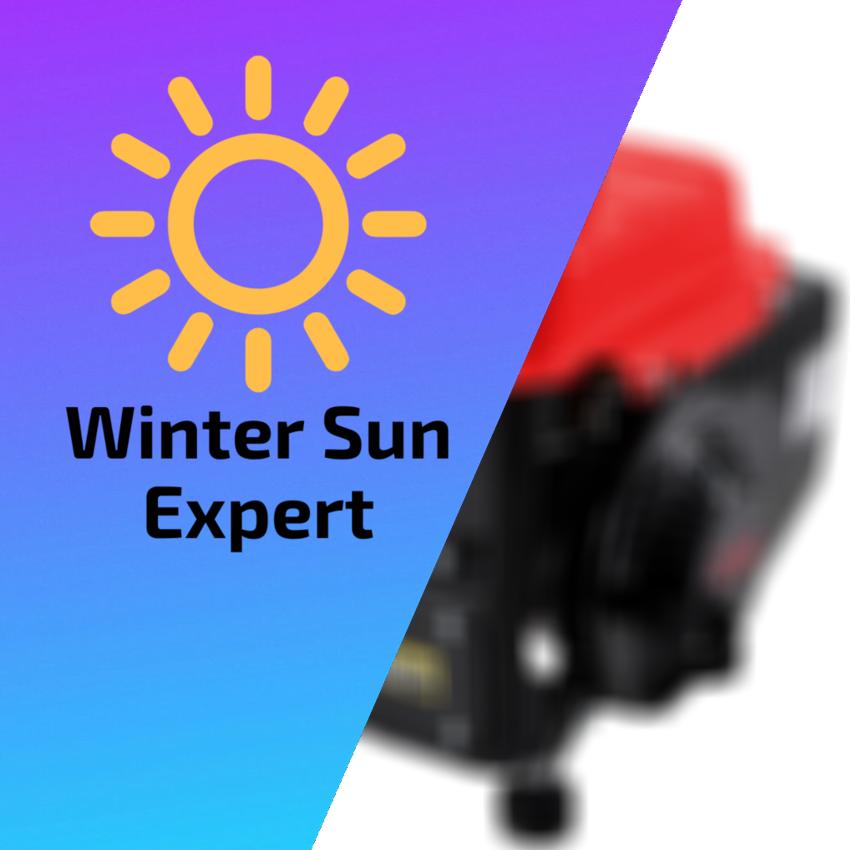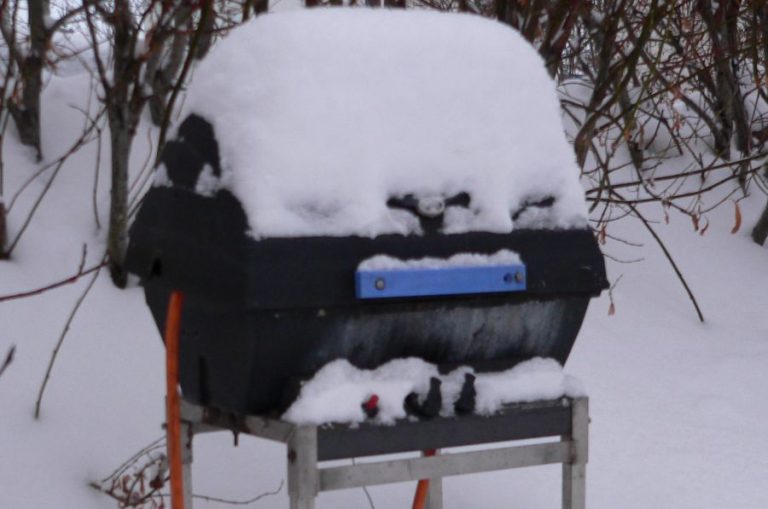Fixing an RV Generator That Keeps Shutting Down
Generators are clearly the base of modern technologies. Among various types of these power suppliers, the portable generators have gained increased popularity just because they can be carried almost anywhere. In the world of RVs, portable generators have created a special place. But, with great ease comes great responsibilities. The most common problem among RV users is the constant shut down of the generator. The users get baffled by the huge array of possibilities that lead up to this problem. So, how can an RV generator that keeps shutting down be fixed? Here's how!
An RV generator that keeps shutting down can be due to a problem with the:
- Carburetor
- Fuel Cap
- Oil Level
- Fuel Filter
- Spark Plugs

There are a lot of reasons that can cause an RV generator to constantly shut down without prior notice. Though it is pretty difficult to locate the exact problem without the proper tools and setup, some basic checks can help in this manner. Checking the carburetor, oil level, fuel filter, air filter, and spark plugs can create a basic outline to solve the problem.
If you have an RV and need a heads up on keeping your generator from harm's way, the next paragraphs are for you. Read thoroughly and don't forget to approach with caution. Let's find out how you can fix an RV generator that keeps shutting down!
Contents
The runtime of an RV Generator
To know why your generator keeps shutting down, you first need to know how many hours it's meant to run. An RV generator is a durable type of portable generator that is designed to run for a couple of hours or a day without interruption. Most of the portable RV generators have a lifespan of more than a thousand hours. But, you can't simply run a portable generator or any type of generator for days without giving it some cooldown time. If an RV generator is left running for a couple of days straight, it won't last and will shut down when it wants to.
There are many parts inside an RV generator. That means, there are many reasons for the generator to shut down. It can be a power supply shortage or fuel line defect or many things. To know why your generator is shutting down on its own, you need to know how it works. There are mainly five basic parts that you need to know about the most to solve most of the problems. Here's a short note on each of the parts and how they perform!
Part | Location | Design | Basic Task | Problem |
|---|---|---|---|---|
Carburetor | Placed near the engine and fuel tank | Consists of the float bowl, choke and top valve | Regulates the amount of fuel-air mixture required for the engine to run | Clogging in the float bowl or choke |
Fuel Cap | Situated at the outer portion of the fuel tank | Consists of an inlet fuel valve cap | Determines the amount of air to insert according to the amount of fuel exerted | Cap may get clogged or broken |
Oil Tank | Connected to the main engine with fuel line | Consists of a cylindrical metal tank with connections at both ends | Keeps the required oil inside and supplies it to the generator when needed | Oil gets thicker and creates clogging |
Fuel Filter | Connected to the fuel tank and connects it with the engine with fuel line | Consists of a cap and cartridges | Filters the amount of oil that supplies towards the engine and keeps the amount of air at a moderate level | The filter can get clogged up and restrict the airflow |
Spark Plugs | Situated inside the engine and located on top of the Piston | Consists of a system that creates sparks to ignite the fuel inserted | Creates a spark when the fuel-air mixture is inserted into the piston area and runs the engine | Ignition system may get broken |
Possible Causes of Generator Failure
As I've stated earlier, there could be many reasons that lead up to the condition where the generator keeps shutting down on its own. To find out why it's happening, you need to check the basic parts one-by-one and find out the problem yourself. Here's how you can do it!
– Carburetor
The carburetor is the most important part of a generator. Typically, carburetors are affected by the quality and quantity of fuel inserted. If a generator keeps shutting down, the first step would be to look for spillage in the carburetor. The carburetor may get clogged because of the condition of the fuel inserted. Other than that, the float bowl may have bad quality fuel and made up a very unusual product from oil that makes it hard to operate.
Fuel needs changing from time to time. If used up old fuel is kept in the engine section for a prolonged period of time, the complex substances may get evaporated and leave a thick and sticky layer of varnish-like product. This thick product can put a stop to the supply line and stop the engine from running.
If you find a sticky substance like this in the carburetor, it's time to change the fuel inside. You need to completely drain out the old fuel and clean the inside of the carburetor as much as you can. The left out fuel can be collected from the float bowl. The carburetor can be cleaned with specially designed carburetor cleaners. If this does not fix the shutting down problem, it's time to change the carburetor completely.

– Fuel Cap
As we all know, the engine of a generator gets fuel from the fuel tank and the level lowers with the amount consumed by the engine. To keep a balance inside the fuel tank, the air is inserted into the tank with the help of a small vent. The amount of air inserted depends on the amount of fuel consumed by the engine. If the cap of the vent is clogged, the tank won't be able to suck the air needed. This would result in a vapor lock condition and a continuous shut down of the generator.
To make sure if the vent is clogged or not, simply loosen the cap on top of the vent and try running the generator. If this makes the engine run, your fuel cap needs to be replaced. You can try to clean the cap, but it's not worth it. Once the vent cap is clogged, it won't survive much longer.
– Oil Level
The oil level is as important as any component inside the generator. With the rapid usage of the generator, the oil stored inside gets used up. The warmer it gets inside the oil tank, the thinner the oil becomes with time. When the level of oil is low, it will casually stop the generator from running. If the level of oil falls below the required line, the generator would stop working immediately.
If you haven't changed the oil for a long time, it's high time you gave a look at it by now. While changing the oil, you should take a good look at the oil filter too. Oil filters get clogged if a certain amount of oil is kept inside for a long time. Change the filter if you see something like that.
– Fuel Filter
The fuel filter is the medium of the fuel to get inside the engine. Fuel filter plays a vital role in keeping the generator running smoothly. But sometimes the fuel filter may restrict the amount of fuel that can pass through it. The most common cause of this is the clogging inside the filter.
Another thing to note here is the fuel line. The fuel line runs from the fuel tank to the engine and conveys the required amount of fuel. If there are any leaks in the fuel line, the engine won't get the amount of fuel needed to run properly. Look for leaks and if you find any, replace the filter as soon as you can. Remember, the fuel level needs to be kept over 1/4th of the tank in order to run properly. The mechanism is set so that the generator must shut down automatically if the fuel level is less than the required amount.
– Spark Plugs
Spark plugs set the fuel to a suitable condition inside the engine. One of the reasons for the constant shut down of the generator may be spark plugs that don't supply the necessary spark. If you haven't changed your spark plug for a long time and the generator is shutting down relentlessly, it's high time you changed it.
Final Thoughts
As a professional mechanic, I've faced a lot of generator problems throughout my career. When the generator of an RV stops functioning or shuts down immediately after it's switched on, that means there's a problem with one of the basic parts inside it. As I've mentioned above, the importance of keeping the parts clean is the most important thing when it comes to keeping your generator running smoothly. Change the parts whenever you deem fit and perform monthly maintenance checks. Don't ruin the parts by overusing the generator. Give breaks and use them with care.






